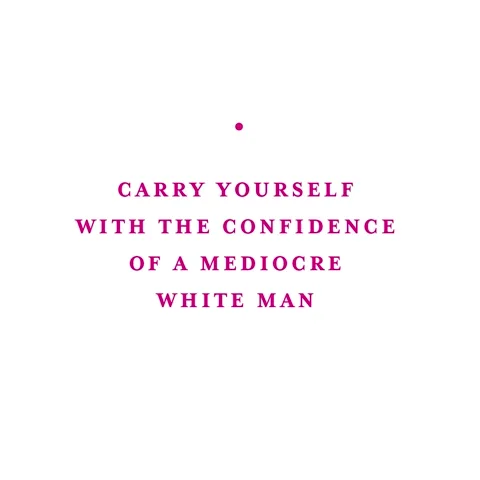Originally published at: How one woman took on Wikipedia's Nazi fancruft | Boing Boing
…
My own personal experience of early Wikipedia was that someone made an entry that named him as doing a specific noteworthy thing when in fact I was the one, and he wasn’t involved in any way. I’ve never even met the man. At the time I was able to correct it, and it went unchallenged. Still early enough that he probably didn’t realize that he could fight it despite being caught. That showed me that I couldn’t believe everything I read in Wikipedia, especially once the editorial wars started happening between different factions. What stands isn’t necessarily the truth, but rather the story the people in control want you to believe.
Same old, same old.
Professional Nazi man baby crying, again.

Wikipedia has its good points, and its uses. The problem with Wikipedia is that it is very explicltly meant to be a compendium of information found elsewhere: in other words, a kind of guide and summary of stuff from primary sources, news reports, etc. external to it. This is in itself a bit weird, because the Encyclopedia Britannica (to take one example) solicited and published articles from experts in various fields who had personal knowledge of them, but in Wikipedia you are not supposed to employ your personal knowledge, however expert it might be. You are supposed to cite sources, and there’s the rub, because there are a lot of unreliable, inaccurate, and/or tendentious sources out there.
There are also a lot of poorly informed or very seriously biased Wikipedia contributors, and because the seriously biased tend to be also very insistent on a particular point of view, it is hard to win an “edit war” in an article that attracts people like that.
So, what you read could well be poorly sourced or deliberately slanted, and your attempts at a fix may be for naught. I have some experience with this.
See also: “Stack Exchange bro problem”
These platforms beg for community participation but then become the equivalent of a shitty HOA when people try to participate.
I read this earlier in the week. Good for her!

The whole idea that because WP is crowd sourced, it will be more objective and free from error is just absurd.
Right? It ignores the fact that secondary sources are themselves prone to bias. What secondary sources are employed also matter. It’s meant to reflect “settled” issues, but these issues are NEVER settled and history is always being revised with new information and new perspectives.
And god forbid someone does an article that cribs incorrect obscure information from Wikipedia without crediting it, because someone else will cite that article for the incorrect information and forever lock it into the page.
Now I really have to know the rest of the story
Beware also other crowdsourced databases. In the video game world, people take it for granted that MobyGames is the definitive source for information. I was in the industry for 25 years, yet my entire page on MobyGames is wrong. Nearly every single credit, timestamp, order of events, and other information about me is wrong. It matters because potential employers, conferences, and press all rely on this data to evaluate you.
The owner of the site claims to gladly take corrections, so one day I sat down and wrote him a long friendly email detailing all the inaccuracies and supplying correct information. I provided documentation where possible, but mostly it wasn’t possible because video game companies are ruthlessly secretive and don’t release any information about most things. I was told by the site operator to “go fuck myself” (actual quote) because I had no proof.
So as others have said, because the existing information (based on god knows what) was already there, it was deemed more accurate unless I could somehow produce magical documents that were more convincing to him than the nothing that his current information was based on. It made no sense, and my actually being the person described had zero value to him.
One of the zillion reasons I don’t miss a single day of that garbage industry.
I’m here to chew gum and punch nazis, and look, I’m all out of gum…
His edits probably get reverted because he is editing the article about himself.
However, if he is simply correcting factual errors the editors are being over-zealous.
In clear-cut cases, it is permissible to edit pages connected to yourself. So, you can revert vandalism; but of course it has to be simple, obvious vandalism and not a content dispute. Similarly, you should feel free to remove obviously mistaken facts about yourself, such as marital status, current employer, place of birth, and so on. (Note it on the talk page.) If the fact has different interpretations, others will edit it.
This is what he was trying to do.
What a load of horseshit that statement is on so many levels.
Wikipedia is so focused on “secondary sources” that its editors will trust them — even if they are wrong — over facts from lived experience.

Like @kiki said, though, this attitude does kind of make sense given the particular basis of Wikipedia’s authority. If you had that conversation with the New York Times, then you’d hope that they’d accept your qualifications (after checking); and once it’s laundered through them, then your version of the story becomes the one that Wikipedia gatekeepers will defend.
Cos, the flip side of Wikipedia not accepting “I was there” as a citation is that unqualified Wiki editors can’t end up arbitrating disputes over “I’m Zsa Zsa Gabor” / “No I’M Zsa Zsa Gabor” – which has to be a good thing. And in some cases you could even publish your own blog as a source, and/or edit a wiki page to reflect that facts are disputed, so long as the page itself isn’t used to testify in the dispute.
Obviously the approach is imperfect, and it breaks down when you drill into topics with fewer available sources. But overall, it works so much better than anyone could expect that I’d be worried about trying to “fix” it.
I think one underappreciated success is the way the style of pages ends up being a gauge for general quality. You can easily tell when you’re looking at an unripe entry, because it takes the attentions of many anal people to make something read like a triple-A Wikipedia page. If you’re looking for something obscure, you’ll still find leads, but you can also tell for yourself that the wiki entry should be taken with a pinch of salt. It means people learn to read the whole site critically, in a way that they don’t do (but should) with more professional publications.

The wikipedia page about a neurobiologist I know used to be dedicated to claims of his murderous involvement with the nazis and his subsequent decades of fleeing accountability. While I know nothing about his personal politics, I do know that he was born in the mid-40s, which made any claims about his role with the nazis in WWII obvious bs.
I am often pleasantly surprised how good wikipedia is on technical subjects, but there are also occasional topics that I have personal knowledge about and am stunned how some of the info is just complete and total bullshit
It’s too bad you didn’t have a selfie from your days there, like wearing a name badge with the company logo or standing in the lounge or something.
That was some infancy

I love the concept of an unripe page on Wikipedia. Thank you for this little gift! It’s perfect - it tells me the page isn’t ready yet, and I should come back later.
Oh, and I’M ZSA ZSA GABOR!